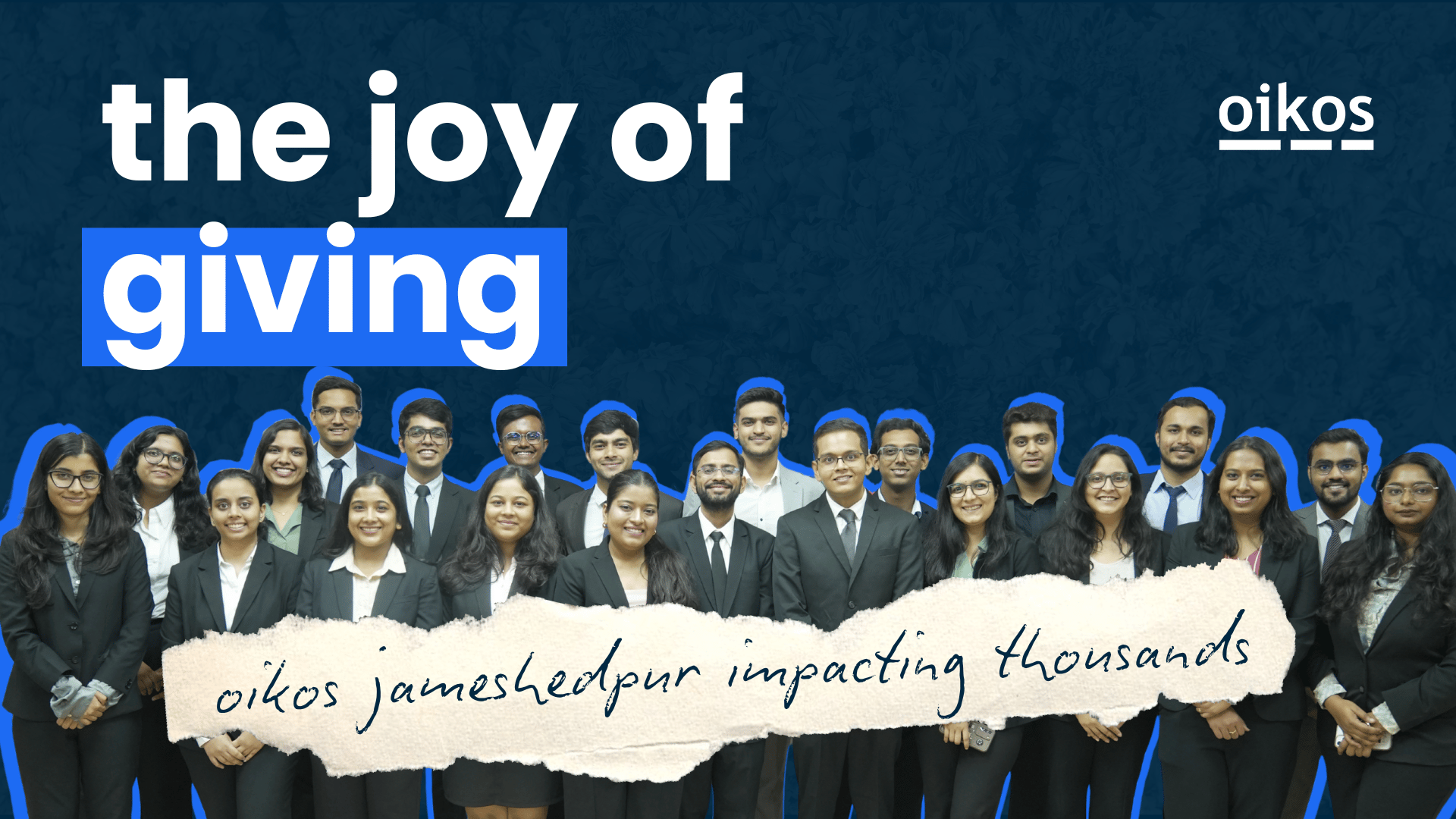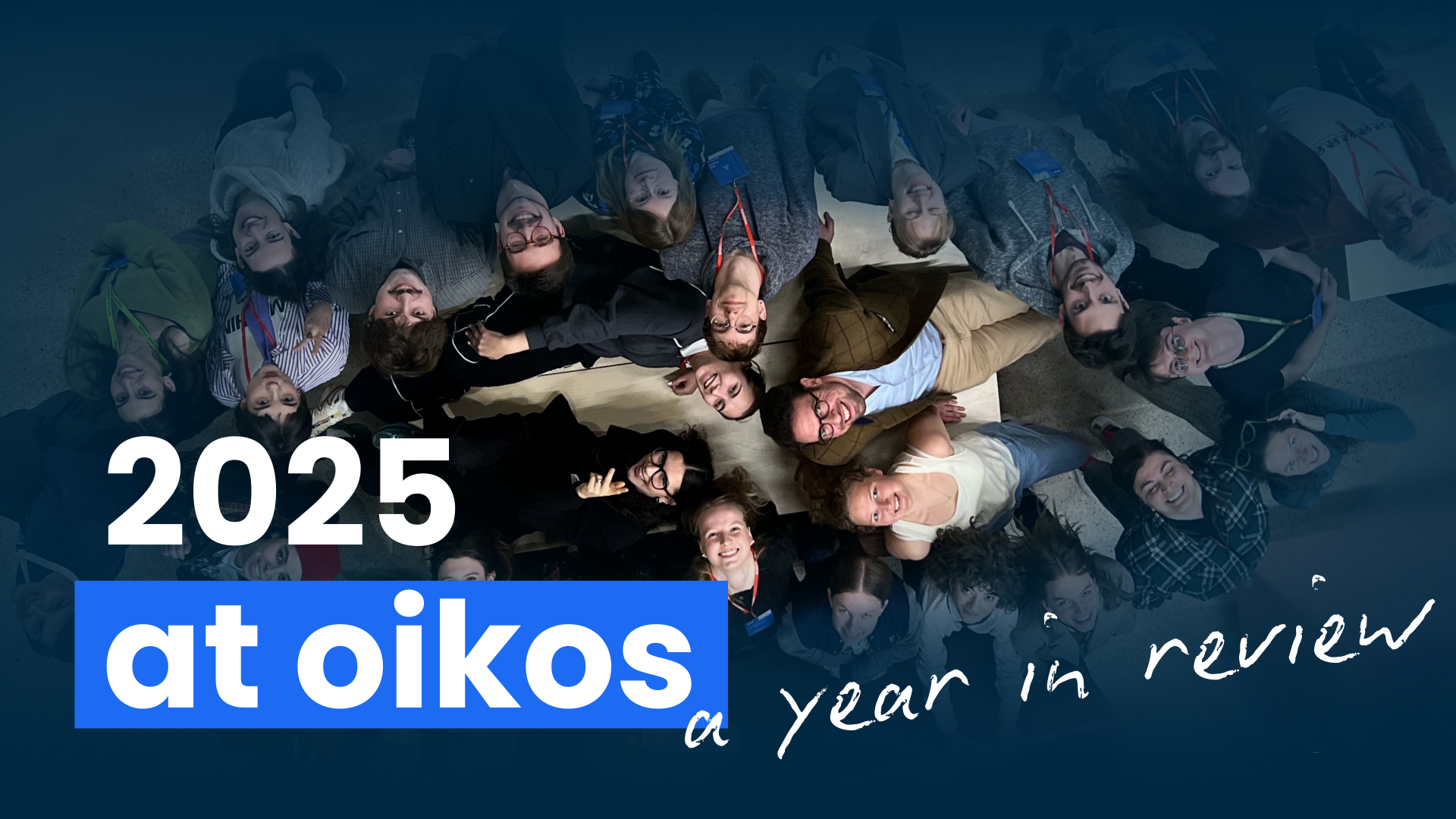
Serving as the Human Resource Officer, and later President of oikos Johannesburg, remains one of the most challenging tasks I have faced. Our projects were ambitious; we were working with little support infrastructure on our university campus; and we were learning by doing.
Prioritizing Sustainability among Pressing Development Challenges in South Africa
Sustainability was a new and fairly unexplored concept in the region. Our job was not only to contextualise sustainable development and make it relevant, but also to motivate for its priority among the pressing development challenges South Africa and the region faces. Our youth, passion and drive charted the path to the successful implementation of our projects. Our proudest moments include carrying out a simulation of the WTO Doha development round; supporting a perma-culture garden in inner-city Johannesburg; and developing a seminar series tackling a broad range of social, economic and environmental challenges on the continent, with recommendations from students in partnership with industry leaders in the field. This was made better when we received the attention of South Africa’s Presidency for our work. It is unfortunate that the oikos Johannesburg chapter is no longer active, however, the legacy remains in the network of young professionals who have passed through the organisation.
Helping in Diversifying South Africa’s Electricity Mix
The oikos Presidency taught me about myself as a leader, and thus, prepared me for my career path. Following my time at oikos, I worked as an intern on UNCTAD’s 2010 World Investment Report, “Investing in a Low-Carbon Economy”. The report looked at country-specific incentives to encourage renewable energy and energy-efficient technologies. My contribution was a high-level analysis of programmes in South Africa, which at the time, had introduced a renewable energy feed-in tariff, that later evolved into the successful large-scale renewable energy procurement programme that runs today. I would later review the country’s Renewable Energy Independent Power Procurement programme (REIPPP) as a free-lance consultant, and its success in creating an industry that has diversified the country’s electricity mix.
In South Africa and Developing Regions, Sustainability Must Serve a Dual Purpose
The programme has opened up the country’s electricity generation for private independent power producers, who have been able to supply less costly electricity to which they sell to the electricity utility, Eskom. In addition to lowering emissions in the energy sector, the programme attempts to tackle the country’s high unemployment and inequality by requiring IPPs to employ residents living in the areas surrounding the power project; to use local manufacturing inputs; and to invest in community-driven development projects. The programme is indicative of South Africa’s approach to sustainable development: sustainability must serve the dual purpose environmental mainstreaming and socio-economic development, which in this case, is improving the efficiency and cost-effectiveness of electricity generation. South Africa is not alone in its commitment to environmental mainstreaming: as a consultant to the OECD, we showcased policy frameworks and programmes in Mauritius, Rwanda, Sierra Leone, South Africa and Zambia in seminal workshop entitled “Green Growth in Africa”.
Improve Measuring Environmental Costs to Promote Low-Carbon Alternatives
I currently serve as an Analyst at the National Treasury of South Africa, appraising feasibility studies for mega infrastructure projects, primarily in transport and energy sectors. My role is to weigh the costs and benefits of a project requesting National Treasury funding, and thus, assess the value for money the project offers to the country’s welfare. My experience is teaching me that there is much room for improvement in quantifying the environmental costs of mega projects, which can subsequently support investments in low-carbon technology alternatives.



